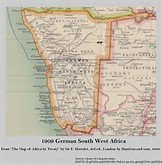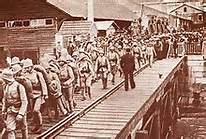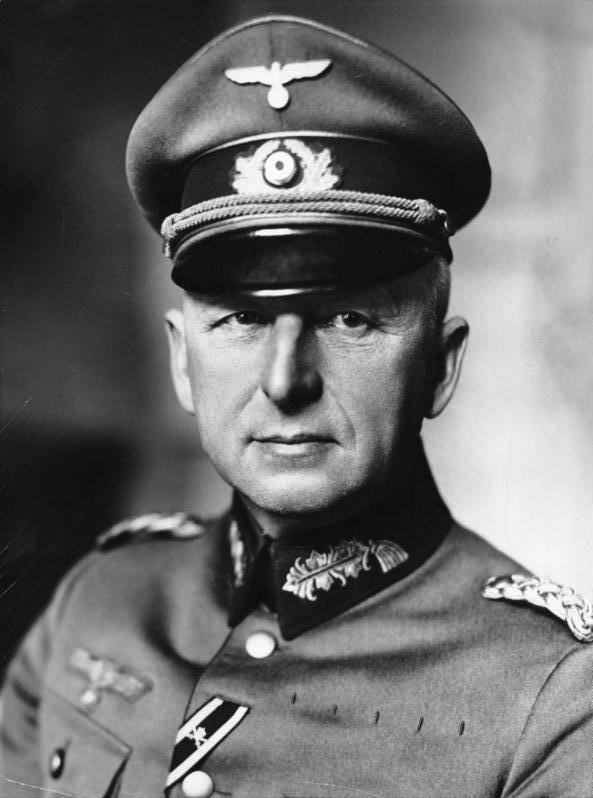Southwest African Campaign
Sept 9, 2016 23:00:35 GMT
Napoleon Bonaparte, Quintus Fabius, and 1 more like this
Post by Ivan Kolev on Sept 9, 2016 23:00:35 GMT
Today, we talk about the Southwest African campaign in WWI.



Top: German Southwest Africa
Middle: Portuguese troops arriving in Southern Angola.
Bottom: Louis Botha
"The former South African Republic and Orange Free State as well as the Cape Province and Natal are proclaimed free from British control and independent, and every [all] White inhabitant of the mentioned areas, of whatever nationality, are hereby called upon to take their weapons in their hands and realise the long-cherished ideal of a Free and Independent South Africa."
- Lieutenant Colonel Manie Maritz, leader of the Maritz Rebellion.
The Germans had controlled Namibia since the 1880's, when the Scramble for Africa began. The Germans were brutal to the native Herero and Namaqua peoples in Namibia, and after a rebellion against the Germans occurred in the early 1900's, the Germans began rounding Namaqua and Herero people into concentration camps and started a campaign of mass extermination against them. The Herero Genocide of 1904 is considered to be the first genocide of the 20th century, and still affects German-Namibian relations to this day. Following the end of the genocide and the subsequent release of all people from the camps, the Herero and Namaqua were subjugated to racial segregation, very similar to what would become known as Apartheid much later on. In 1910, after the British took over the Boer States of the Transvaal and the Oranje Free State as well as numerous tribal African kingdoms, the Union of South Africa was made into a nation of the British commonwealth with Louis Botha as its prime minister. Though Botha fought in the Boer Wars against the British, he believed that helping the British instead of resisting them would help in Boer goals.
When WWI broke out in 1914, German Southwest Africa became an important region, with 7,000 German soldiers in the colony. Botha told the British that they could withdraw their Imperial Garrison from South Africa and send it to France. When the British asked Botha if South African forces would invade German Southwest Africa, he said that they could and they would. South African forces under Henry Lukin moved into the colony in September and the port of Lüderitz was occupied within the month.
The Boer populations in the Transvaal and the Oranje Free State were very sympathetic to the Germans, due to a closer cultural connection with them than the British as well as the fact that the German Government gave moral support to the Boers in the Second Boer War. On September 15th, 1914, Lt. Colonel Manie Maritz, with 12,000 boer supporters, rebelled against the South African government. The government proceeded to declare martial law on October 14th and government forces led by Louis Botha and Jan Smuts crushed the rebellion by February 4th, 1915. Maritz was able to escape to German SW Africa, but most of the rebels received prison sentences of up to seven years. Most of these were reduced to only two years, however, due to recruitment issues and Botha thought that releasing them would help ease tensions with the Boer populations.
The South Africans attempted an initial invasion in September of 1914, but were repulsed by German forces at the Battle of Sandfontein, with the S. African forces needing to retreat back across the border into the Cape Colony. The Germans then launched an offensive at the Battle of Kakamas on February 4th, 1915, but were repulsed by the S. African defenders. Botha then prepared his forces for another month, reinforcing the forces in Walvis Bay and on the border of the colony. In March, his forces invaded from Walvis Bay and the border, and were able to take the colonial capital of Windhoek on May 5th, 1915.
The Germans and the Portuguese also clashed on the border of German Southwest Africa and Portuguese West Africa (Angola). The Germans initiated the clashes after the Portuguese refused to give the Germans military access through Portuguese colonies. The Germans won the majority of these border clashes, and even occupied a large chunk of Southern Angola, but the Portuguese were able to regain control following the arrival of reinforcements. The tensions caused by these border skirmishes would be a large reason for Portugal's entry in the war on the side of the Entente.
The South African forces then proceeded to mop up the final resistance in the colony having already split the colony in half and taking Windhoek. The Germans made a last stand at the village of Otavi on July 1st, but were beaten and finally surrendered on July 9th in the town of Khorab, signifying the end of the campaign. The war resulted in Namibia being ceded to South Africa, and the campaign would be very influential for Portugal's entry into the war.



Top: German Southwest Africa
Middle: Portuguese troops arriving in Southern Angola.
Bottom: Louis Botha
"The former South African Republic and Orange Free State as well as the Cape Province and Natal are proclaimed free from British control and independent, and every [all] White inhabitant of the mentioned areas, of whatever nationality, are hereby called upon to take their weapons in their hands and realise the long-cherished ideal of a Free and Independent South Africa."
- Lieutenant Colonel Manie Maritz, leader of the Maritz Rebellion.
The Germans had controlled Namibia since the 1880's, when the Scramble for Africa began. The Germans were brutal to the native Herero and Namaqua peoples in Namibia, and after a rebellion against the Germans occurred in the early 1900's, the Germans began rounding Namaqua and Herero people into concentration camps and started a campaign of mass extermination against them. The Herero Genocide of 1904 is considered to be the first genocide of the 20th century, and still affects German-Namibian relations to this day. Following the end of the genocide and the subsequent release of all people from the camps, the Herero and Namaqua were subjugated to racial segregation, very similar to what would become known as Apartheid much later on. In 1910, after the British took over the Boer States of the Transvaal and the Oranje Free State as well as numerous tribal African kingdoms, the Union of South Africa was made into a nation of the British commonwealth with Louis Botha as its prime minister. Though Botha fought in the Boer Wars against the British, he believed that helping the British instead of resisting them would help in Boer goals.
When WWI broke out in 1914, German Southwest Africa became an important region, with 7,000 German soldiers in the colony. Botha told the British that they could withdraw their Imperial Garrison from South Africa and send it to France. When the British asked Botha if South African forces would invade German Southwest Africa, he said that they could and they would. South African forces under Henry Lukin moved into the colony in September and the port of Lüderitz was occupied within the month.
The Boer populations in the Transvaal and the Oranje Free State were very sympathetic to the Germans, due to a closer cultural connection with them than the British as well as the fact that the German Government gave moral support to the Boers in the Second Boer War. On September 15th, 1914, Lt. Colonel Manie Maritz, with 12,000 boer supporters, rebelled against the South African government. The government proceeded to declare martial law on October 14th and government forces led by Louis Botha and Jan Smuts crushed the rebellion by February 4th, 1915. Maritz was able to escape to German SW Africa, but most of the rebels received prison sentences of up to seven years. Most of these were reduced to only two years, however, due to recruitment issues and Botha thought that releasing them would help ease tensions with the Boer populations.
The South Africans attempted an initial invasion in September of 1914, but were repulsed by German forces at the Battle of Sandfontein, with the S. African forces needing to retreat back across the border into the Cape Colony. The Germans then launched an offensive at the Battle of Kakamas on February 4th, 1915, but were repulsed by the S. African defenders. Botha then prepared his forces for another month, reinforcing the forces in Walvis Bay and on the border of the colony. In March, his forces invaded from Walvis Bay and the border, and were able to take the colonial capital of Windhoek on May 5th, 1915.
The Germans and the Portuguese also clashed on the border of German Southwest Africa and Portuguese West Africa (Angola). The Germans initiated the clashes after the Portuguese refused to give the Germans military access through Portuguese colonies. The Germans won the majority of these border clashes, and even occupied a large chunk of Southern Angola, but the Portuguese were able to regain control following the arrival of reinforcements. The tensions caused by these border skirmishes would be a large reason for Portugal's entry in the war on the side of the Entente.
The South African forces then proceeded to mop up the final resistance in the colony having already split the colony in half and taking Windhoek. The Germans made a last stand at the village of Otavi on July 1st, but were beaten and finally surrendered on July 9th in the town of Khorab, signifying the end of the campaign. The war resulted in Namibia being ceded to South Africa, and the campaign would be very influential for Portugal's entry into the war.





